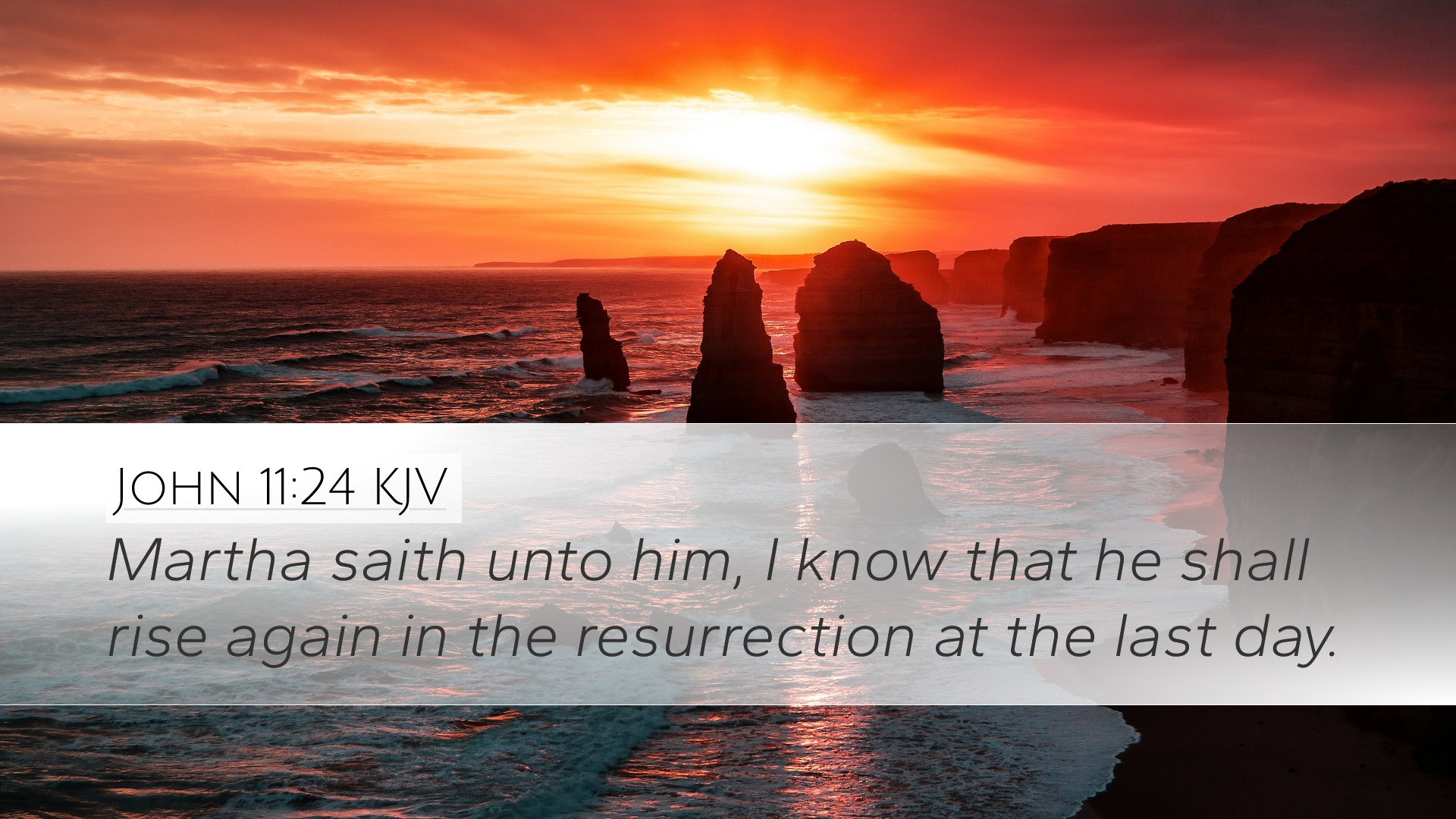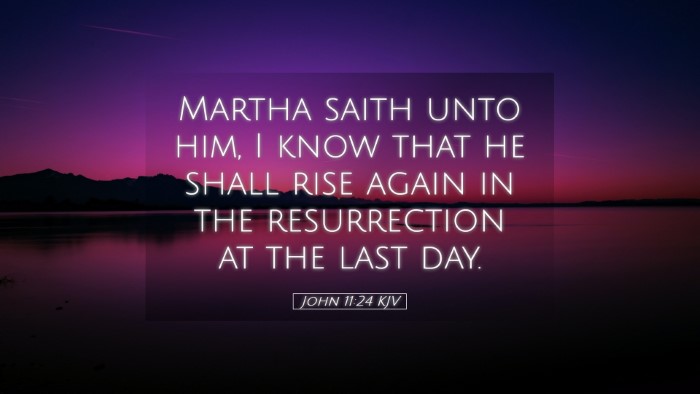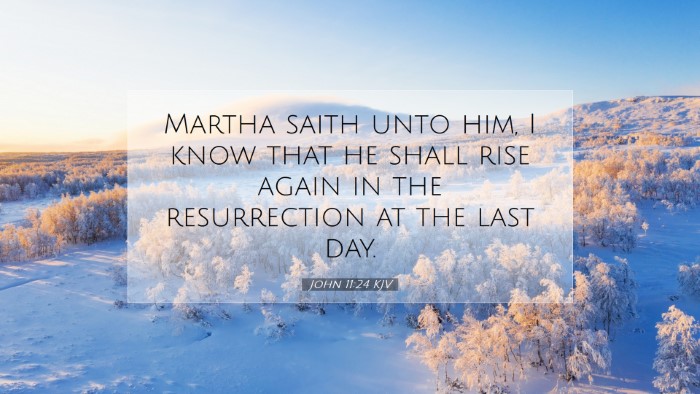Commentary on John 11:24
John 11:24 contains a profound statement made by Martha in her conversation with Jesus during the sorrowful occasion of her brother Lazarus's death. The verse reads: "Martha said to Him, 'I know that he will rise again in the resurrection at the last day.'" This verse opens up a rich tapestry of theological implications concerning resurrection and the hope of eternal life, drawing insights from various public domain commentaries.
Context of John 11:24
The context of this conversation is critical for understanding Martha's declaration. Lazarus, her brother, had been dead for four days when Jesus arrived in Bethany. The despair of Martha and Mary, along with the surrounding community, is palpable in the narrative. Martha acknowledges Jesus as the One who possesses the power over life and death, and her statement about the last day resurrection reflects her understanding of Jewish eschatology.
Insights from Matthew Henry
Matthew Henry emphasizes the profound nature of Martha’s faith. He notes that Martha, while grieving, still possesses a belief in a future resurrection. He points out that her declaration, "I know," signifies certainty and knowledge. Henry elaborates on the belief in resurrection present in Jewish tradition, highlighting that Martha articulates a core tenet of faith shared among the Jews of her time.
Moreover, Henry comments on Martha's understanding that the resurrection is not merely a distant hope but an integral part of her faith in Jesus. This reflects a vital connection between personal grief and theological understanding.
Insights from Albert Barnes
Albert Barnes provides further commentary on the theological implications of Martha's words. He notes that her assertion about the resurrection at the last day expresses a hope that was common among the Jews, particularly the Pharisees. Barnes emphasizes that this anticipation was not just theoretical but deeply rooted in the prophetic traditions, such as those found in Daniel 12:2, which states, "Many of those who sleep in the dust of the earth shall awake, some to everlasting life." This emphasizes Martha's faith in a corporate resurrection rather than merely a personal one.
Furthermore, Barnes points out that Martha's faith also reflects her understanding of Jesus’s role in this resurrection. She acknowledges Him as a pivotal figure in the resurrection promise, even if her understanding may not fully encompass the reality of Christ as the resurrection and the life, which he reveals shortly thereafter in the same narrative.
Insights from Adam Clarke
Adam Clarke gives a thorough interpretation of Martha’s belief, discussing the theological implications of her statement. He emphasizes that Martha's acknowledgement of the resurrection at the last day aligns with the contemporary beliefs of the Jewish people. Clarke notes that while she believes in the future resurrection, she does not yet grasp the immediacy of Jesus's power over death.
Clarke further explores the emotional state of Martha, noting that her faith is mixed with belief and sorrow. This tension showcases a common human experience—holding onto hope while grappling with deep grief. Clarke's observations encourage readers to understand that faith often exists alongside doubt and sorrow, creating a profound narrative of human experience in the face of death.
Theological Implications
The verse serves as a gateway to explore significant theological themes:
- Resurrection and Eternal Life: Martha's declaration points towards the future eschatological hope that is pervasive within Christianity. It serves as a reminder of the promise of resurrection that extends beyond physical death, a theme that becomes even clearer in the New Testament through the resurrection of Christ.
- Personal Faith Amidst Grief: This interaction illustrates that faith can coexist with grief. Martha’s words capture the essence of a faithful believer grappling with the loss of a loved one while still holding onto the promises of God.
- Christ’s Authority: The broader narrative shows Jesus asserting His authority over death. Just after this dialogue, He performs the miraculous act of raising Lazarus, thus not only affirming Martha's belief in the resurrection but also redefining it through His identity.
Conclusion
In summary, John 11:24 serves as a significant theological anchor for understanding resurrection, grief, and faith. The insights from Matthew Henry, Albert Barnes, and Adam Clarke highlight the complexity of Martha's assertion and its implications for believers today. While Martha expresses a belief in the future resurrection, her interaction with Jesus unfolds the greater truth that Jesus Himself is the resurrection and the life, offering hope that transcends earthly sorrow.
This verse invites pastors, students, theologians, and Bible scholars to deeply reflect on the nature of faith in times of despair, the promises of God concerning eternal life, and the transformative power of Christ that challenges and comforts us in our darkest hours.


